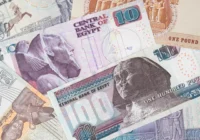Corruption poses one of the most serious threats to economic development, democratic governance and public trust in institutions. To address this, countries must develop integrated accountability ecosystems in which Supreme Audit Institutions (SAIs) and professional service providers (PSPs) play pivotal parts. SAIs provide fiscal oversight and transparency in public finances while PSPs — such as lawyers, accountants and corporate service providers — can either facilitate financial activities or serve as gatekeepers in anti-corruption efforts. This piece explores these dual roles using Mauritius as a case study, and calls for stronger regulatory alignment and institutional capacity to reduce corruption.
The strategic importance of SAIs
SAIs are crucial to upholding transparency and integrity in government operations. Their audits expose inefficiencies, irregularities and misappropriations of public resources. The International Organization of Supreme Audit Institutions states that SAIs enhance governance by conducting independent audits and fostering accountability in the public sector.
Many SAIs face challenges, especially in corrupt systems. These difficulties include weak legal mandates, political interference and resource shortages. The United Nations Convention against Corruption encourages states to empower SAIs with independence, access to information and adequate resources. To be effective, the institutions must also coordinate with anti-corruption agencies, law enforcement and civil society, building formal channels for the follow-up of audit findings.
Mauritius and the FCC
Mauritius has long marketed itself as a financial hub with investor-friendly regulations and tax advantages. However, this openness has also exposed vulnerabilities to illicit financial flows. In 2019, the Mauritius Leaks investigation by the International Consortium of Investigative Journalists revealed how multinationals used the country to shift profits and reduce tax liabilities in African and Asian countries, often using shell companies and nominee structures facilitated by local PSPs.
In response, Mauritius implemented a series of anti-money laundering reforms and, in 2023, launched the Financial Crimes Commission (FCC) to consolidate anti-corruption and financial enforcement functions. The FCC’s mandate includes asset recovery, money laundering investigations and coordination with the Financial Intelligence Unit and other regulatory bodies.
In April 2025, the FCC underscored the significance of this institutional strengthening when it arrested former Minister of Finance Renganaden Padayachy and former Central Bank Governor Harvesh Seegolam in connection with an alleged embezzlement of 300 million Mauritian rupees (over $6.74 million) from the Mauritius Investment Corporation — a fund designed to support businesses during the Covid-19 pandemic. The arrests, which came after the newly elected Prime Minister Navin Ramgoolam ordered an audit of public finances, highlight the evolving assertiveness of the FCC and its potential to enhance accountability, especially when previous administrations are accused of manipulating fiscal data to conceal public debt and deficits.
Perception, information and support for accountability
Recent research by Daron Acemoglu et al. on the 2023 Turkish elections reveals that popular support for authoritarian regimes may be driven not by a genuine preference for authoritarianism, but misperceptions about the benefits of democratic governance and the costs of repression. Their study shows that many citizens underestimate the importance of democratic institutions, particularly media freedom and independent oversight, in addressing corruption and disaster response.
This finding is especially relevant in the context of Mauritius and similar jurisdictions, where public trust in democratic institutions and anti-corruption mechanisms is often undermined by complex financial systems and opaque enforcement. Efforts to strengthen SAIs and regulate PSPs may falter if citizens do not perceive these institutions as effective or necessary. In this light, improving public awareness about the value of transparent governance and independent oversight is not only a political or legal necessity but a strategic tool for reinforcing accountability.
Acemoglu’s findings suggest that reform efforts in Mauritius could be enhanced by parallel information campaigns targeting public understanding of the link between corruption, weak institutions and democratic erosion. Empowering citizens with accurate information can shift perceptions and build support for institutional reforms, increasing demand for stronger accountability frameworks.
The fight against corruption requires strong institutions, aligned incentives and credible enforcement mechanisms. SAIs play a fundamental part in public sector oversight, but their impact is amplified through partnerships with other stakeholders, particularly professional service providers. The case of Mauritius illustrates both the risks and opportunities in this domain: While PSPs may facilitate financial secrecy and abuse, they can also be powerful allies in promoting transparency if regulated effectively. Strengthening the role of SAIs and embedding PSPs into the accountability framework is crucial not only for national governance but for global financial integrity.
[Lee Thompson-Kolar edited this page.]
The views expressed in this article are the author’s own and do not necessarily reflect Fair Observer’s editorial policy.
Support Fair Observer
We rely on your support for our independence, diversity and quality.
For more than 10 years, Fair Observer has been free, fair and independent. No billionaire owns us, no advertisers control us. We are a reader-supported nonprofit. Unlike many other publications, we keep our content free for readers regardless of where they live or whether they can afford to pay. We have no paywalls and no ads.
In the post-truth era of fake news, echo chambers and filter bubbles, we publish a plurality of perspectives from around the world. Anyone can publish with us, but everyone goes through a rigorous editorial process. So, you get fact-checked, well-reasoned content instead of noise.
We publish 2,500+ voices from 90+ countries. We also conduct education and training programs
on subjects ranging from digital media and journalism to writing and critical thinking. This
doesn’t come cheap. Servers, editors, trainers and web developers cost
money.
Please consider supporting us on a regular basis as a recurring donor or a
sustaining member.
Will you support FO’s journalism?
We rely on your support for our independence, diversity and quality.







Comment